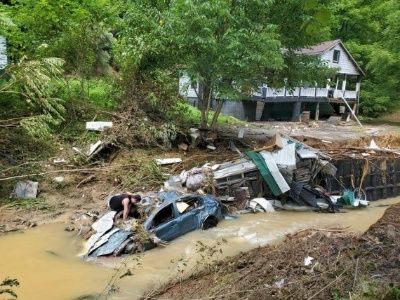Canadian police face allegations of using excessive force environmentally.
3 min read
Accusations have surfaced against officers of the C-IRG, alleging the forcible removal of masks from protesters and the use of pepper spray during a demonstration in British Columbia.
Amid a surge in complaints regarding excessive force, non-compliance with court orders, and violations of protesters’ rights, Canada’s federal police force has launched an investigation into the controversial unit responsible for overseeing environmental protests.
The Civilian Review and Complaints Commission, a monitoring division within the Royal Canadian Mounted Police, declared on Thursday its intention to examine the activities of the Community-Industry Response Group, also known as C-IRG, stationed in British Columbia.
In the midst of the Fairy Creek blockade, a demonstration opposing logging in old-growth forests on Vancouver Island, allegations arose against members of the specialized unit for forcibly removing protesters’ masks, employing pepper spray, and pulling them by their hair.
As previously reported by The Guardian, the C-IRG took part in protests against the Coastal GasLink pipeline, deploying riot control personnel, canines, and helicopters to dismantle blockades. The unit also expressed a readiness to use lethal force against Indigenous protesters. Furthermore, a judge from the British Columbia Supreme Court deemed the RCMP’s exclusion zones, established to prevent media entry into specific areas of the injunction zone, as illegal.
The RCMP has faced criticism for an extended period for its treatment of Indigenous individuals, and recently, concerns about accountability and disregard for court rulings have been mounting. The C-IRG has been accused of mistreatment, bias, and excessive aggression, although the unit’s leadership has contested these accusations.
A legal action has been initiated against the unit, alleging the use of “illicit tactics” in dismantling the Fairy Creek demonstration. The unit is also implicated in a broader legal case related to press freedom, stemming from the detention of two journalists by RCMP officers documenting efforts to remove barriers against the Coastal GasLink pipeline on traditional Wet’suwet’en land.
As stated by the RCMP supervisory organization, an assessment will be conducted to ascertain if the unit’s actions align with Canada’s Charter of Rights and Freedoms and recently enacted legislation linked to the United Nations’ declaration on the rights of Indigenous peoples. Additionally, the police force has affirmed its commitment to ensuring the unit’s conduct aligns with the recommendations outlined in the national inquiry addressing missing and murdered Indigenous women and girls.
The RCMP oversight body has declared its intention to evaluate the unit’s adherence to Canada’s Charter of Rights and Freedoms, along with recent legislation concerning the United Nations declaration on the rights of Indigenous peoples. The police force has also pledged to ensure the unit follows the recommendations provided in the national inquiry on missing and murdered Indigenous women and girls.
According to the RCMP, the CRCC possesses the authority to investigate the conduct of individual officers and assess whether any modifications are necessary in terms of policies or training. The police force has acknowledged in a statement that the investigation was anticipated.
Media Relations Officer Staff Sgt. Kris Clark mentioned that the RCMP had foreseen the possibility of a review and had been actively cooperating to grant the CRCC complete access, ensuring a comprehensive understanding of the C-IRG’s policies, procedures, practices, guidelines, training, and operations.



